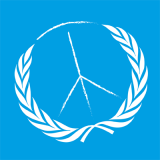Since the Abolition 2000 Task Force on the OEWG was established in April 2013, much work has been done by its members in support of the OEWG. On this page you can find a brief overview of the key actions, catch up on the work of the Task Force and draw inspiration for your engagement.
This page is continuously updated. Last update on: June 10, 2013
Birth of the Task Force
The Task Force was established at the Abolition 2000 Annual Meeting in Edinburgh, Scotland, on April 17-18, 2013. Following week, during the NPT Preparatory Committee in Geneva, founding members of the Task Force met to discuss opportunities of the OEWG, and shaped first ideas for activities. Coordinators of the Task Force also met with the Chair of the OEWG to discuss what would be the most useful way for civil society to contribute to the new UN process.
The Task Force decided to focus its work on two major areas, 1) encouragement of countries to participate in good faith in the OEWG, and 2) promotion of realistic approaches leading to achievement of a world without nuclear weapons, particularly through a nuclear weapons convention, which has been the key goal of the Abolition 2000 network.
Production of two publications was planned – a manual for campaigners containing basic background on the OEWG and tips for action to support it, and another manual for governments, especially of small non-CD countries, elevating the importance of the new UN process and encouraging states to participate in it. Outlines of the two manuals were circulated in the Task Force mailing-list and perfected in fruitful discussions among members. Subsequently, several members of the Task Force started drafting the manuals in order to have them ready for the first OEWG sessions in May.
First OEWG meetings – May 14-24, 2013
The Abolition 2000 Task Force was represented at the May OEWG sessions by a variety of experts and campaigners from a range of organisations, who actively contributed to the formal exchange of views, as well as to all informal panels and discussions.
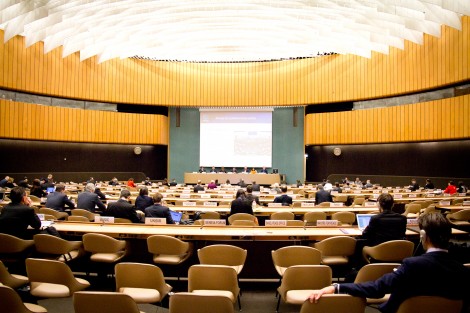
Two side-events were organized during the two weeks in May:
Mayors for Peace and PNND held a lunchtime roundtable event Good Faith and the Open-Ended Working Group: Distraction or Obligation?. Taking place on May 14, just before the very first session of the OEWG, the event brought together diplomats from the key countries that stand behind this new process in an informal discussion on what direction the OEWG might take.
The following week, the Abolition 2000 Task Force and the Basel Peace Office co-sponsored a lunchtime panel discussion Nuclear Weapons Convention: Exploring and Developing Elements of a Nuclear-Weapons-Free World. Panellists Jürgen Schaffran, Regina Hagen and Alyn Ware introduced the concept of a nuclear weapons convention and made an overview of the work that has been done to demonstrate its feasibility, including the Model NWC and simulated negotiations on a NWC. In order to bridge the gap between the pure step-by-step approach and the pure comprehensive one, the discussion focused on achieving a nuclear weapons free world through an incremental-comprehensive process, that would include an early start of simultaneous preparatory work on some elements (or building-blocks) inspired by the Model NWC. Draft versions of the manuals for campaigners and governments were presented at the event and circulated for comments. The event was supported by the Austrian Federal Ministry for European and International Affairs.
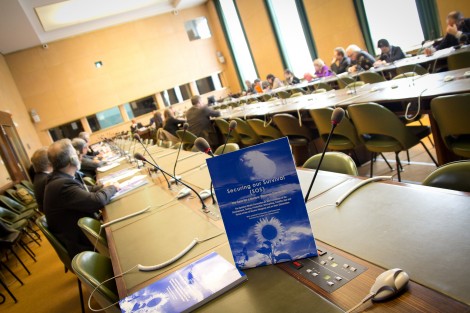
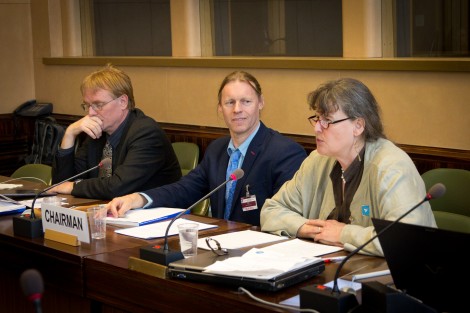
During May, a number of people from around the world joined the Task Force, making the membership grow up to 60 people from 20 countries in the end of the month. The Task Force members who participated in the meetings in Geneva kept others updated through the Task Force mailing list.
At the concluding May session, a set of recommendations was presented to the OEWG by the Basel Peace Office, after consultation with members of the Task Force. The paper encouraged countries to submit working papers that would define elements (or building-blocks) of a nuclear weapons free world, and identify obstacles to nuclear disarmament, especially the role of nuclear weapons in security policies of states. The paper also encouraged countries to work on elevating political attention for both the OEWG and the upcoming UN High Level Meeting in September, pointing out that “the OEWG can provide proposals for disarmament, while the High Level Meeting can provide the political will necessary to achieve them.”
Manuals for governments and campaigners
In the end of June, the Abolition 2000 Task Force released final versions of the two manuals supporting the OEWG.
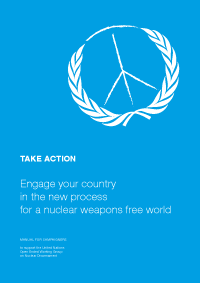 |
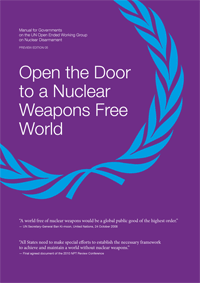 |
|
Manual for Campaigners Edition 1.1 |
Manual for Governments Edition 1.0 |
The Manual for Governments encourages states to participate in the OEWG. It explains the background, procedures and mandate of the working group, and includes a summary of the first block of meetings, so that countries that haven’t participated in the OEWG can catch up on its work and join in later. In addition to that, the manual gives an overview of approaches to disarmament and suggests how the OEWG could put in motion a realistic process for multilateral disarmament. The manual was sent to all Permanent Missions in Geneva and distributed at the OEWG session on June 27.
The Manual for Campaigners provides organisations and individuals from around the world with tips for actions to support the OEWG. It calls on campaigners to encourage their countries to participate in the OEWG – through meetings with government officials, work with parliamentarians and mayors, and public actions attractive for media. The manual also encourages campaigners to promote a nuclear weapons convention to their governments, parliaments and academia.
OEWG meeting on June 27, 2013
The OEWG met briefly at one session on June 27. States presented several working papers on approaches to disarmament, and discussed how the OEWG could continue its work in August.
A nuclear weapons convention, which has been promoted by the Abolition 2000 Task Force throughout the May meetings, was included among the proposed approaches. Some of the proposals for the content of the August meetings contained inter alia what had been recommended by the Task Force in May – definition of a list of building blocks of a nuclear weapons free world, and a review of the role of nuclear weapons in security doctrines.
Abolition 2000 Task Force used the opportunity to present and distribute the Manuals for Governments, and was commended at the session by the OEWG Chair, Ambassador Dengo of Costa Rica, for its work in support of the working group.
Summer call for action: “Open the Door to a Nuclear Weapons Free World”
To demonstrate public support for the vision of a world without nuclear weapons, and to increase political attention for the OEWG and a new multilateral disarmament process that it may put in motion, the Abolition 2000 Task Force calls on campaigners around the world to organize public events with motive of “opening the door to a nuclear weapons free world”. Photos and videos of all events will be published on the Task Force website and reported to the OEWG in August.
2020 Vision Campaign (project of Mayors for Peace) launched an appeal supporting a related initiative – the UN High Level Meeting that will take place in New York on September 26, 2013. The High Level Meeting will be a chance to build political momentum for the recommendations emerging from OEWG, and therefore we call on countries to participate in this meeting on the highest level possible (ministerial or presidential).
… to be continued …
Join the Abolition 2000 Task Force on the OEWG
and take part in shaping the end of this story!
